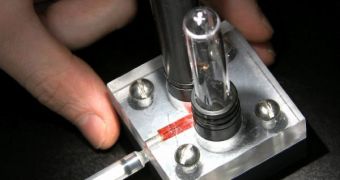It's not easy to concentrate after a long sleepless night, everybody knows that. It has been scientifically proven more than once that sleep deprivation actually decreases the activity of the brain, while after having slept, it reaches its highest levels. Washington University School of Medicine researchers have proven for the first time how the brain can maintain the learning and memorizing capabilities even after being deprived of sleep by inducing genetic mutations in fruit flies.
"The ultimate goal is to find new ways to help people like the armed forces and first responders stay alert and on top of things when they have to be awake for extended periods of time. We have drugs now that can keep people awake, but they're addictive and lose their effectiveness with repeated use. This research should help us find methods for maintaining mental acuity that have more specific effects, are less addictive and retain their potency," said assistant professor of neurobiology, Paul Shaw, Ph.D.
The study showed that flies have inactivity periods that can be approximated to what we call sleep, and much in the same way as with humans, these periods begin with the onset of night; thus, they are cyclic. If deprived of it, they also experience sleep debt, meaning that if they don't sleep during one night, they will recuperate during the next day.
In order to observe how sleep deprivation impairs flies, Laurent Seugnet, Ph.D., and lead author of the study, created an experiment in which the learning capabilities of fruit flies were tested. The flies were forced to enter a maze with two possible options. One path would lead them to an empty dark vial, while the other took them into a transparent vial containing quinine.
"This tests the flies' mental capacity in two ways: first, they've got to remember that the lighted vial is the one that has quinine in it, and then they've got to suppress their natural instinct to fly toward the light," said Seugnet.
Quinine is a bitter tasting substance. Flies that experienced normal sleep eventually learned to avoid the vial containing it, however sleep deprived flies could not and always entered the transparent vial, being attracted by light.
Scientists were already aware of the fact that some of the mental capabilities of the brain are regulated by a substance known as dopamine; thus, by creating flies with mutations that allowed them to have more dopamine receptors, the team was able to prove that indeed this messenger is responsible for the learning disorders associated to the lack of sleep. Flies with extra dopamine receptors were able to avoid the transparent vial and the unpleasant taste even after a whole night without sleep.
"Using this gene and other related genes, we may be able to find better ways to boost performance for someone like a relief worker who's had to stay awake for six straight days trying to save people trapped by an earthquake. I want to emphasize, though, that this type of treatment would just be for people who absolutely have to stay awake. It's not about trying to cram too many hours in your day - everyone else should just suck it up and get a good night's sleep," Shaw explained.

 14 DAY TRIAL //
14 DAY TRIAL //